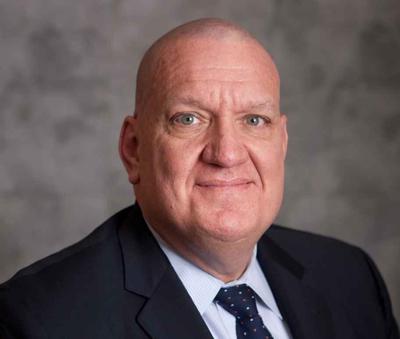Students on college campuses last year gathered to protest military actions by Israel against Palestinians in Gaza. Fearing retribution and targeting by universities, police and others for their speech, many of the students donned masks to cover their faces.

Edwin C. Yohnka
In response, state and local legislators introduced measures to ban anyone from wearing a mask while engaging in First Amendment protected activity. One New York legislator who sponsored such a measure captured the essence of the proponents’ arguments for a mask ban, saying that “if you’re truly out there for peaceful assembly, then there’s no reason to cover your face. For those that cover their face, their intentions are to do something that is not peaceful.”
One wonders about the consistency of those lawmakers considering recent events. Driven by frustration from the White House over the pace of deportations, U.S. Immigration and Customs Enforcement officers across the country are engaging in aggressive and brutal enforcement activities on the streets of many cities, in restaurants and other businesses and even in courthouses — where immigration judges are persuaded to dismiss cases and ICE officers immediately take unsuspecting people into custody. Video footage of these actions show masked ICE officers — often without identification — making arrests and separating families.
People are also reading…
Tufts University doctoral student RĂĽmeysa Ă–ztĂĽrk was approached by a group of unidentified, armed, masked immigration officers and taken into custody in March. Ă–ztĂĽrk was being detained because she had co-authored an opinion piece in a student newspaper. For that offense, she was swept up in an act that looked like a kidnapping.
When asked recently about ICE officers wearing masks and not identifying themselves, the head of ICE noted the outrage and criticism aimed at ICE agents when they charged into a popular San Diego restaurant, detained kitchen staff during business hours and set off smoke bombs. The ICE official said criticism of ICE officers as “terrorists” justified the masks.
It is not surprising that some ICE agents want to hide their faces. The work they are doing is unpopular and cruel. The harsh, militaristic nature of their actions is being met with protest and opposition across the country.
The White House responded to this opposition and protest in Los Angeles by sending National Guard troops to further militarize the implementation of the administration’s policies. The secretary of defense is deploying Marines, further escalating tensions.
Groups of masked agents, armed with weapons, moving around a city in unmarked vehicles creates a public safety risk for police and residents. If an armed group of local police confronts these masked ICE agents, how will they know they are federal law enforcement officers? A situation like this could escalate rapidly.
Worse, the masks send a signal to ICE officers and the public that they are not accountable for their actions — even unconstitutional and illegal actions — and that their superiors will cover for them and encourage them to hide their identities when they are acting in their official capacity. This is the opposite of accountability.
Chicago police officers are expressly prohibited from hiding their nameplates or badge numbers when out on the streets. But federal immigration officers are not held to the same standard.
It is tragic that some lawmakers believe people engaged in protest under the First Amendment should be held more accountable than sworn, armed immigration officers. The administration of President Donald Trump should prohibit ICE officers from wearing masks to prevent them from being identified in the public. This is not the way a democracy should work — in which those working to forward the president’s agenda can act with impunity, but everyone else needs to follow the rules.
This must change.











